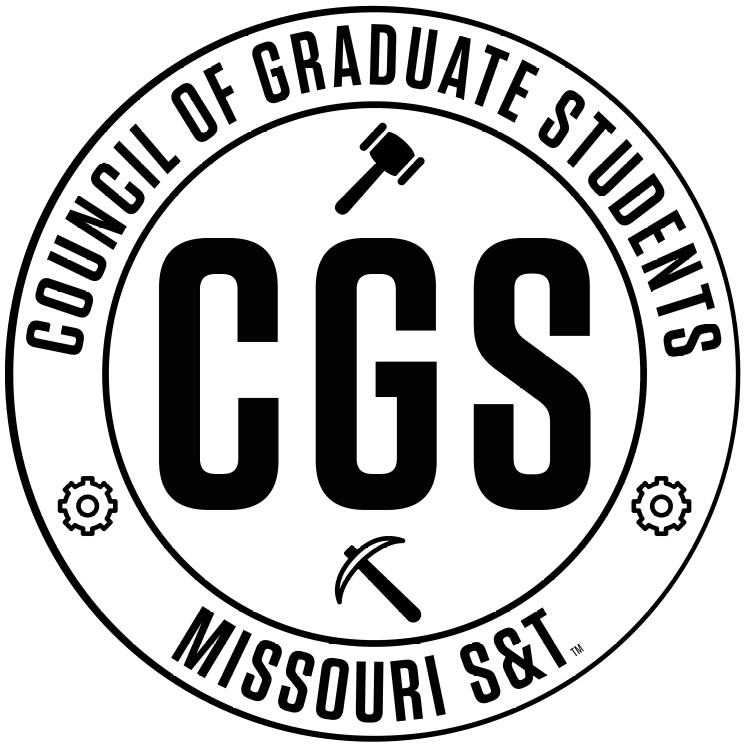Graduate Student's Bill of Rights
The Graduate Students Bill of Rights serves as a guiding document committed to the positive facilitation of discussions among graduate students, their peers, the faculty and academic advisors, and the administrators to support Missouri University of Science and Technology’s research and teaching mission, including students maintaining satisfactory academic and research performance. This document is an agreeable set of standards shaping a consistent expectation for graduate students’ experiences at Missouri University of Science and Technology. It provides guidelines to faculty members, academic advisors, and graduate students. The statements below demonstrate the commitment of administration, faculty, and graduate students to set fundamental norms, thereby promoting a positive graduate education culture and ensuring enjoyable and efficient time at the university. Additionally, it fosters graduate student engagement with principles of academic freedom, equal opportunity, inclusive education, and diverse offerings.
The Graduate Students Bill of Rights does not conflict with nor supersede University policies, UM System Collected Rules and Regulations (CRRs), professional codes, and/or ethical codes.
The academic rights of graduate students include, but are not limited to, the following items. Graduate students have the rights to:
1.1. Pursue activities, collaboration, research, and publications to increase academic and/or professional development.
1.2. Work and study in an environment with others following professional conduct.
1.3. Be allowed time to devoted to pursue research projects pertaining to their thesis or dissertation work outside of possible assistantship requirements.
1.4. Refuse to participate in activities that are unrelated to academic pursuits or professional development, particularly those that do not directly or indirectly benefit the completion of the defined appointment, thesis/dissertation, or professional development, without adverse consequences from the advisor or department.
1.5. Have specific and concrete requirements for achieving an advanced degree.
1.6. Graduate upon successful fulfillment of the requirements as outlined by their department (including, if applicable, requirements set by the student’s advisory committee).
1.7. Know the “normative time to degree” and the “average time to degree” within a specific graduate program (whether by communicating with the department or the academic advisor).
1.8. Have clear and reasonable work expectations for assistantship hours (as identified in Chancellor’s Policy II-26) per fair labor practices or department standards.
1.9. Receive support from the university to attain alternative supervision (external to their program, if necessary) in case a graduate student’s academic adviser departs (whether by choice, layoff, or an unforeseeable event) from the institution after the student’s work is underway.
1.10. Receive notification regarding graduate student academic performance and receive specific recommendations and requirements needed to correct deficiencies. After notification of poor performance, students should be provided with a reasonable time-frame and opportunity (preferably one semester) to improve their performance back to satisfactory levels. In addition to an opportunity to remedy their performance, and before beginning the process to remove a student from a graduate program for academic reasons, students must be given a specific, written performance evaluation in advance of actual dismissal, explaining the deficiencies. In the event of major examination failure or unsatisfactory performance, the reasoning for such assessment scores will be provided to the graduate student in writing and the process as outlined by the department should be followed.
1.11. Take appropriate time off during the year, as agreed with their academic/research advisor.
The rights of graduate students regarding information release and receipt include, but are not limited to, the following items.
Graduate students have the rights to:
2.1. Be informed about their rights and responsibilities.
2.2. Information about and inclusion in all decision-making regarding services and policies affecting their well-being.
2.3. Clear, written, and easily accessible information about their degree program requirements, departmental requirements, student expectations, and the expected academic progress timeline.
2.4. Know stipend amounts funded within their department before signing a contract. 2.5. Information preferably one semester in advance and in writing regarding any changes made to assistantship contracts, unless circumstances outside of the PI’s control concerning the source of available funding change (e.g., funding agency changes, college TA budget changes). Students should be notified in their assistantship contract the process for determining future funding based on their performance in the assistantship and availability of funding.
The rights of graduate students regarding professional development include, but are not limited to, the following items.
Graduate students have the rights to:
3.1. Representatives on all campus-wide administrative committees that affect graduate students (including but not limited to budgetary affairs, effective teaching, facilities planning, information technology computing, library and learning resources, public occasions, student affairs, student awards, financial aids, parking security and traffic, student conduct committee, student scholastic appeals, outstanding teaching awards, and Ex-Officio member of Faculty Senate and Graduate Council).
3.2. Ownership and access to their intellectual property, in line with the UM System Copyright Regulations and Guidelines (CRR 100.030).
3.3. Authorship of and acknowledgment for scholarly publications commensurate with their contribution to such works.
3.4. Receive due credit and recognition for innovation(s) and intellectual ideas conceptualized by the student, in line with the UM System Copyright Regulations and Guidelines (CRR 100.030).
3.5. Change their faculty advisor under the guidance of their department chair and/or Vice Provost and Dean.
3.6. Information via website postings and/or emails about financial aid and resource allotment to support their academic career.
The rights of graduate students for freedom from discrimination and adverse conduct include but are not limited to the following items.
Graduate students have the rights to:
4.1. Conduct research, learn, teach, and participate in university programs and activities in environments free of discrimination based on race, color, national origin, ancestry, religion, sex, pregnancy, sexual orientation, gender identity, gender expression, age, disability, protected veteran status, and any other status protected by applicable state or federal law.
4.2. Confidentiality and professional treatment by their academic colleagues.
4.3. Academic free speech within the academic setting. Students will have the right to express their ideas without fear of penalty, including a right to critically evaluate ideas, questioning and challenging them from a position of knowledge rather than one of unexamined belief.
4.4. Reasonable accommodations for any diagnosed disability that a graduate or professional student has upon receiving University status or that emerges after receiving University status.
4.5. Participate in an academic atmosphere that welcomes and encourages diversity.
4.6. Work and study in safe environments that protect their mental and physical well-being.
The graduate students shall be committed to duties related to their academic responsibilities in the classroom, in addition to the working hours as stated in their assistantship contract, if applicable. They are responsible for maintaining positive, open, and professional communication with the administration, the faculty, their academic advisors, and their peers. Graduate students with teaching and/or research appointments are accountable for maintaining the highest levels of academic integrity and professionalism in their teaching and research practices. Graduate students and faculty members are highly encouraged to draft and sign an agreement to ensure mutual understanding of expectations of duties in accordance with Missouri University of Science and Technology guidelines and policies.
Letters of Support
The graduate student's bill of rights has been approved and supported by the following departments:
- Graduate Council (approved on April 6, 2022)
- Office of the Provost (received April 20, 2022)
- Office of Graduate Education (received January 19, 2023)
- Vice Provost and Dean, College of Engineering and Computing (received March 26, 2023)
- Vice Provost and Dean, College of Arts, Sciences, and Education (received April 27, 2023)
- Vice Provost and Dean, Kummer College (received April 27, 2023)
The Graduate Student Bill of Rights and the letters of support can be found in the documents below.



Follow Missouri S&T Council of Graduate Students